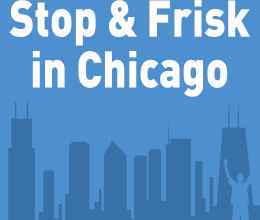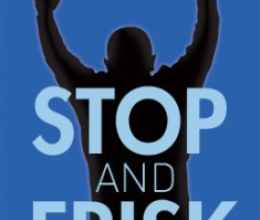By Ellyn Fortino, Communications Intern
February is Black History Month. In honor of the celebration, the American Civil Liberties Union of Illinois is remembering some cases in our long history of working for racial justice and fighting against race-based discrimination. Here is just a small sample of cases we have undertaken in pursuit of a fairer, more equitable society.
Throughout the 1990s, the ACLU of Illinois challenged Chicago's "anti-gang loitering" ordinance, because the law granted police officers powers to arrest men of color for merely standing on their front porches. In the case City of Chicago v. Jesus Morales, the Supreme Court agreed that the ordinance was unconstitutional.
Over the years, we have worked diligently to put an end to the insidious practice of racial profiling. In 2003, House Bill 3911- the Traffic Stop Data Collection Act- passed the Illinois General Assembly and was signed into law. This important bill requires the Illinois State Police to record the race of the person stopped for a traffic or warning citation.
Then State Sen. Barack Obama was the bill's chief sponsor. A "sunset" provision could have stopped data collection in 2009, but it was renewed in 2009 for an additional five years.
Currently, we are working to end entirely the practice of "consent searches" - where an officer asks and is granted permission to search a car by the driver. We have urged the governor to bar consent searches by the Illinois State Police, because statistics demonstrate the inequitable way in which consent searches are applied.
Previous to the passage of the Traffic Stop Data Collection Act, we fought on behalf of three African-American high school students, who were unlawfully detained and searched on their way to a basketball game driven by their assistant basketball coach, a white male.
In 2003, we fought on behalf of Shani Davis, a world class speed skater and member of the 2002 United States Winter Olympic Team, in the case Shani Davis, Damien Joyner and Quincy Joyner v. The City of Chicago. In separate instances, the men on foot were illegally stopped, detained and searched by the Chicago Police Department.
The past 30 years, the ACLU of Illinois has helped to keep Chicago Public Schools desegregated in the case U.S. v. Board of Education. In September 2009, CPS issued a new admissions' plan for select enrollment schools, relying mainly on Socio-Economic Status and not race as the basis of admission to these schools. We question the new admissions' plan and advocate that race still be used as a factor. The ACLU of Illinois believes the use of primarily Socio-Economic Status will result in less integrated schools.
In order to protect desegregation in Chicago's schools, we have served a Freedom of Information Act request on CPS asking how they intend to use race as a factor in their new plan.
In 2000, lawyers for the ACLU of Illinois and the Chicago suburb of Highland Park agreed on a landmark settlement to charges of racial profiling. The settlement said the Highland Park police will not consider race or racial appearance in deciding to surveil, stop, detain, interrogate, or request permission to search. They also must record race during every incident between a civilian and officer, and video and audio equipment must be in every marked police car.
Also, the Highland Park police agreed to implement annual ethnic diversity training for all officers, as well as training in integrity and ethics. The city agreed to make data collected by police available to lawyers for the ACLU of Illinois on a quarterly basis.


